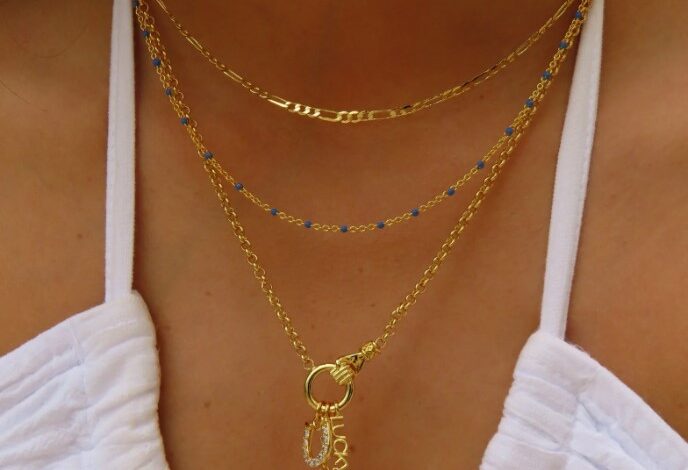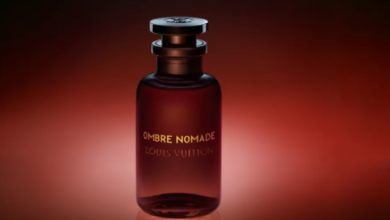How to Care for Your Necklaces: Tips for Keeping Them Dazzling

Necklaces are a timeless addition to any wardrobe, adding elegance, charm, or a touch of sparkle. Whether they are delicate chains or bold statement pieces, necklaces require proper care to maintain their brilliance and beauty. In this guide, we’ll share essential tips on how to care for your necklaces and keep them dazzling for years to come.
Understanding Necklace Materials
Before diving into necklace care, it’s important to understand the materials your jewelry is made of. Different materials require different care routines, and understanding what you have will help ensure you treat your necklace correctly.
Gold and Silver Necklaces
Gold and silver are among the most common materials for necklaces, and both require a gentle approach. Gold is a soft metal and can be prone to scratches, while silver can tarnish over time if exposed to air and moisture.
Gemstone Necklaces
If your necklace contains gemstones, additional care is necessary. Gemstones like diamonds, emeralds, or sapphires may have specific cleaning requirements based on their hardness and other properties.
Costume Jewelry
Costume jewelry like the Twin cross necklace, often made from less expensive materials, may require even more delicate handling. Plated metals can easily lose their coating if not treated with care, and any glued components may loosen if exposed to excessive water or heat.
Cleaning Your Necklaces
Proper cleaning is one of the most important aspects of necklace care. Follow these cleaning tips based on the material of your necklace to keep it shining.
Cleaning Gold and Silver Necklaces
To clean gold or silver necklaces, use a mild soap and warm water solution. Soak the necklace for a few minutes, then gently rub it with a soft cloth or a baby toothbrush to remove any dirt or residue. Rinse thoroughly and dry with a soft, lint-free cloth.
- Silver-Specific Cleaning Tips: To remove tarnish from silver, use a silver polishing cloth or a specific silver cleaner. Avoid using harsh chemicals as they can strip the finish or damage any stones in the necklace.
Cleaning Gemstone Necklaces
Gemstones can accumulate dirt and oil over time. A gentle soap and water solution works well for most gems, but be sure to research the care instructions for specific stones, as some may require special handling.
- Avoid Ultrasonic Cleaners: While ultrasonic cleaners are popular for diamonds, they can damage softer gemstones like emeralds or pearls. Stick to manual cleaning methods unless you’re sure the stone is safe for ultrasonic treatment.
Cleaning Costume Jewelry
Costume jewelry should never be submerged in water. Instead, use a damp, soft cloth to gently wipe away dirt and oils. If needed, you can use a mild soap solution, but always ensure the jewelry is thoroughly dried to prevent rust or tarnish.
Read also: Men Sweaters: Stay Warm and Stylish This Winter
Storing Your Necklaces Properly
How you store your necklaces can significantly affect their longevity. Here are some tips to keep your necklaces tangle-free and safe from damage.
Use Jewelry Boxes or Pouches
Store necklaces in a dedicated jewelry box or soft pouch to protect them from dust and prevent tangling. Velvet-lined compartments are especially useful for preventing scratches on delicate chains.
Avoid Humidity and Moisture
Humidity can cause metals to tarnish and weaken, especially in silver jewelry. Store your necklaces in a dry, cool place away from direct sunlight. For added protection, include a silica gel packet in your jewelry box to absorb moisture.
Keep Gemstones Separate
If your necklaces include gemstones, it’s a good idea to store them separately. Gemstones can scratch metal or other stones, so using individual pouches or compartments is key to maintaining their shine.
Handling Necklaces with Care
Handling your necklaces properly can go a long way in preserving their appearance and structure. Here are some best practices to follow:
Put Necklaces On Last
When getting ready, always put your necklaces on last. This prevents them from being exposed to hair products, perfumes, or lotions, which can cause damage over time.
Remove Necklaces Before Sleeping
It may be tempting to keep your necklace on while you sleep, but this can lead to tangling, knots, or even breakage. Always remove your necklace before going to bed, especially if it’s a delicate chain or has intricate details.
Keep Away from Water and Chemicals
Avoid wearing necklaces while swimming or bathing. Chlorine and salt water can weaken the metal, and soap can leave residue on both the metal and any gemstones. Similarly, take off your necklaces before engaging in activities like cleaning, where they might come into contact with harsh chemicals.
Regular Maintenance and Inspections
In addition to cleaning, it’s important to regularly inspect your necklaces for any signs of wear or damage.
Check Clasps and Connections
The clasp is often the most vulnerable part of a necklace. Check it regularly to ensure it closes securely and that there are no loose connections or links.
Inspect Gemstone Settings
If your necklace contains gemstones, inspect the settings to make sure the stones are securely in place. Over time, prongs can wear down, and stones may become loose.
Professional Cleanings
For high-value necklaces, consider taking them to a professional jeweler once a year for a thorough cleaning and inspection. This can help catch any potential issues before they lead to more significant damage.
Final Thoughts
Caring for your necklaces requires a bit of attention, but with the right cleaning, storage, and handling techniques, you can keep them looking dazzling for years to come. By understanding the materials, following appropriate cleaning methods, and storing them properly, you’ll enjoy your favorite pieces in pristine condition, no matter how often you wear them.




